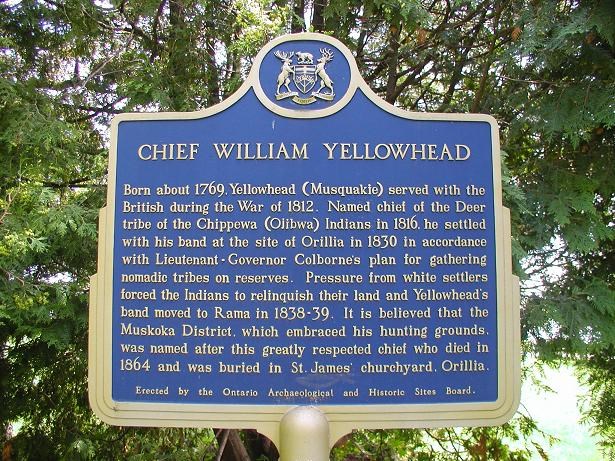NEWS RELEASE
ORILLIA MUSEUM OF ART & HISTORY
********************
The Orillia Museum of Art & History’s (OMAH) History Speaker Series recently kicked off its inaugural 2022 presentation featuring well-known local author and historian Dave Town as guest speaker.
Town has a passion for researching, chronicling and speaking about our local history. He clearly is a popular speaker as 121 people joined the Zoom presentation, whereupon Town told the long-forgotten story, chronicled in his book, Yellowhead’s Revolt.
Rama’s Chief Yellowhead stood defiant against the white man and his fellow chiefs at a 'Great Meeting' held in Orillia in 1846 to finalize a plan to solve the “Indian problem.” The plan included life-changing policies, including the first residential schools in Canada.
Following the American Revolution, the British were keen to protect the lands that were to become Canada from the U.S. and needed immigration to settle the land.
While there was respect shown for the Indigenous populations in Upper Canada as they joined the British during the War of 1812, after the war the British became aggressive towards their former allies. They purchased land from the Indigenous people at a fraction of its worth, initially by cash, then eventually through annuities to be paid in perpetuity. By 1830 all of Southern Ontario was owned by the British.
The attitude of the British after the War of 1812 had changed and the Indigenous people were relegated to Reservations.
In 1828, the British began to conduct studies to determine what to do about the Indigenous populations they had displaced, not only in Canada but across their Empire. It was felt they had an obligation, and therefore the Natives became wards of the state and were promised support, including schools.
The British did not want to grant citizenship to the Indigenous people, nor the right of land ownership, which was a key pillar to citizenship. There had been conflict amongst the settlers and Indigenous communities regarding property lines that impacted hunting and forest resources. The tensions between the two groups escalated.
After 15 years of studies and inquiries, the government of Upper Canada believed that they had found a solution to "The Indian Problem." The Chiefs of the southern Ontario tribes were called to a 'Great Meeting' in Orillia in 1846 to finalize the plan, but when the votes were taken Rama's Chief Yellowhead and his feisty neighbour, Chief Aisance from Beausoleil Island, stood alone in opposition.
At issue were a number of life-changing policies, the most significant of which was the creation of the first residential schools in Canada.
Chief Yellowhead was adamantly opposed to the creation of residential schools and that the children should be sent away to these schools. He also did not agree the tribes should have to fund these schools by giving up a quarter of the annuity they received from the government.
Nor did he agree that the tribes should give up their Reservations and move to one big Reservation situated near the Bruce Peninsula.
It was Chief Yellowhead's last stand as leader of his tribe.
If you want to learn more, please click on the link to access OMAH’s YouTube channel to hear the recording of the talk.
********************
